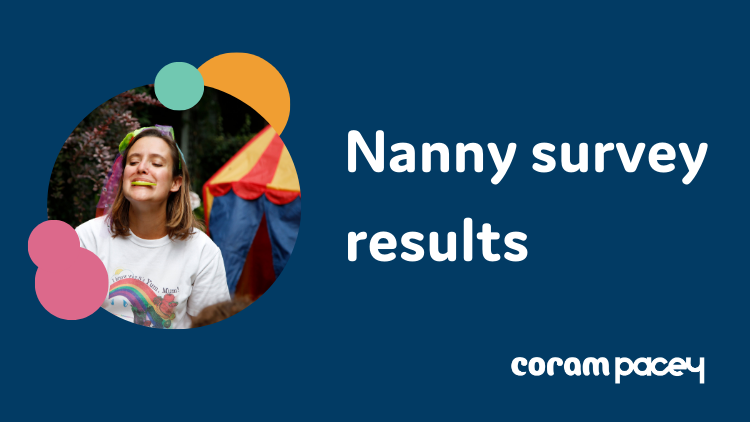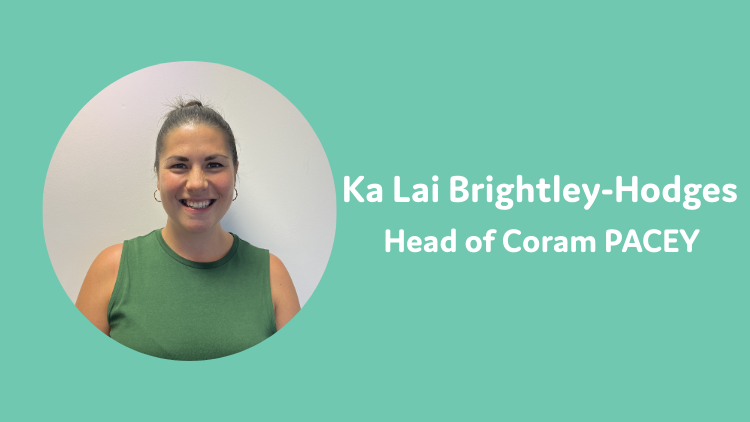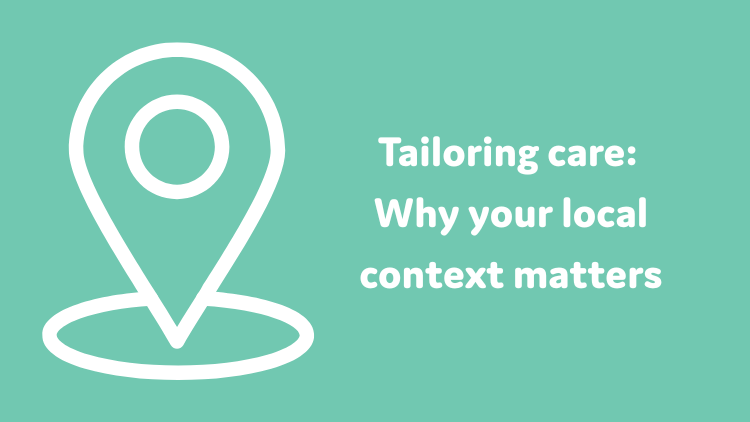By Georgina Young, The Young Ones Childminding
We’ve all been there. You scoop up a wriggly toddler for a nappy change and suddenly find yourself in a full-on wrestling match. Arms flailing, legs kicking, maybe even that stiff-as-a-board back arch. Sometimes changing a nappy feels less like early years care and more like wrangling a crocodile. But it’s moments like these that remind us: even the youngest children have opinions, preferences, and a strong sense of bodily autonomy. And while nappy changing might not always be glamorous, it’s one of the most important opportunities we have to show children that their voices and bodies matter.
What do we mean by “consent” for babies and toddlers?
Consent in nappy changing doesn’t mean children get the final say on whether their nappy is changed – health and hygiene must always come first.
What it does mean though; is taking time to explain what’s happening, involving them in small choices where possible, and noticing their signals – verbal or non-verbal – and responding with respect. It isn’t about handing over full control; it’s about building trust. For me, even the simplest care routines are moments to slow down, connect and bring a sense of warmth and respect into a child’s day. It’s about showing children that we see them, we hear them, and their comfort matters.
Why does this matter?
Nappy changing may feel like a small part of the day, but these routines add up to something much bigger. Each time we explain what’s happening, pause to notice a child’s reaction, or acknowledge their feelings, we are helping to build trust.
These are the building blocks of self-worth. When a baby learns that their carer will narrate what’s happening to their body, they feel secure. When a toddler’s “no” is met with empathy – even if the nappy change still has to go ahead – they learn their voice matters. And when we consistently treat children with dignity during care routines, we plant the seeds of body autonomy and consent that will grow with them into later life. It’s in these ordinary, everyday moments that extraordinary foundations are being laid – for trust, confidence, and relationships built on respect.
Nappy changes aren’t just about keeping children clean. They are moments of connection, relationship-building, and safeguarding foundations – opportunities to say, in small but powerful ways: “Your body belongs to you, and I will always treat it with respect.”
Practical ways to embed consent in nappy changing
This doesn’t need to be complicated. With a few small tweaks, nappy changing can become a space for respect, communication, and even joy:
- Narrate the process: “I’m going to lay you down now so we can get you nice and clean.”
- Offer small choices: “Would you like to bring your teddy?” or “Shall we use the dinosaur mat or the spotty one?”
- Acknowledge feelings: If a child resists, pause and say, “I can see you don’t want to right now. But I need to help keep you clean, healthy and comfy.”
- Balance needs with respect: Sometimes, flexibility is possible. If a child is completely absorbed in finishing their tower, and their nappy isn’t soiled, waiting those extra couple of minutes shows them their play is valued. But there will also be times when health and wellbeing must take priority – and the tower will need to wait.
But what if they say no?
This is the question many practitioners worry about. If we ask for consent and a toddler says no, are we undermining ourselves by going ahead anyway?
The truth is, it’s not about pretending children have full control. It’s about giving them a voice within the process. We can’t always change the outcome, but we can always acknowledge their perspective.
By saying, “I hear you don’t want to. I’ll help you as quickly as I can,” we show children that their feelings are valid. Over time, this builds trust and models what respectful relationships look like.
Respect in the everyday
Nappy changes may not be the most glamorous part of the job, but they are sacred moments: times for one-to-one interaction, gentle conversation or songs. A chance to slow down and connect. These Hygge-like pauses – a rhyme, a smile, a giggle – are often some of the most meaningful parts of the day, reminding us that care is never just practical; it’s deeply relational.
They are also opportunities to show children, quietly and consistently, that their bodies are their own – and that adults can be trusted to respect them.
So yes, sometimes it might feel like wrestling a crocodile. But if we approach these moments with patience, humour, and dignity, we’re doing more than changing nappies. We’re laying the foundations for confidence, safety, and self-worth that children will carry with them for years to come.
Summary
At the heart of it, nappy changing isn’t just about hygiene – it’s about showing children, from the very start, that their bodies are their own and their voices matter. These everyday routines, though ordinary, can be sacred: a chance to connect, to reassure, and to model respect.
Perhaps the question for us to hold onto is this: how can we use even the smallest routines to show children they are heard and valued? Sometimes that means pausing for a tower to be finished or offering a simple choice. Other times, health and wellbeing must take priority.
Either way, these moments are never wasted. They are where trust is built, where confidence and self-worth begin, and where we show young children that they are worthy of respect. And maybe, if we begin to see nappy changes in this light, we’ll also see the quiet power they hold – in shaping not just routines, but futures.
Helpful links
- Safeguarding reforms: Toileting and privacy
- Our sample Intimate care policy balances safeguarding and support needs when changing nappies, toileting and other physical care routines.
- Practice hub resources
- Practice guide: Physical care routines – helping you think about how you can sensitively support children through a range of care routines.
- Factsheet: Intimate care for disabled children – exploring how to provide intimate care for disabled children
- Webinar: Supporting potty learning in early years settings – with Alina Lynden, from ERIC
Georgina Young runs The Young Ones Childminding, where her practice is rooted in play, connection and respect for each child as an individual. She is also the founder of Guiding The Young Ones, a free-access platform created to inspire and support early years educators and families. Through her work and writing, Georgina hopes to uplift and support fellow professionals, and remind others of a sector that deserves to be seen, respected and valued. Georgina won Coram PACEY’s Regional Childminder Award 2025 for Yorkshire and Humber.



